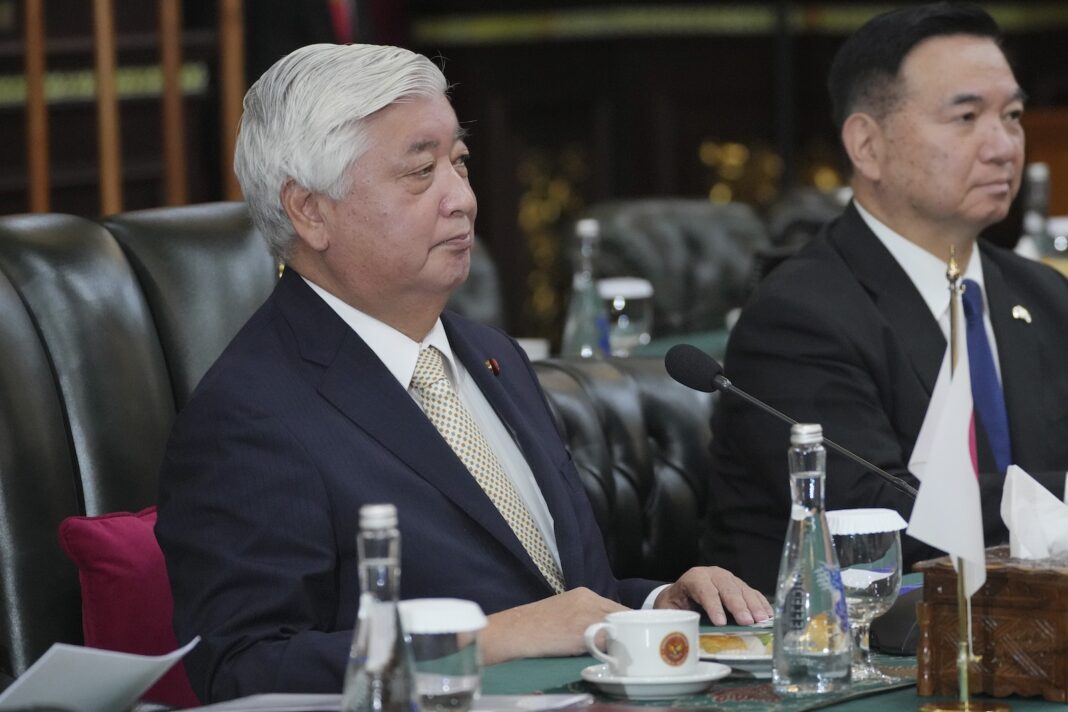Japanese Defense Minister Gen Nakatani is set to visit Britain to discuss a wide range of defense matters, including the progress of a joint fighter jet development project. This trip underscores Japan’s growing focus on international defense partnerships and its commitment to maintaining regional security.
Japanese Strengthening Defense Ties with Britain
The visit highlights the close ties between Japan and Britain in the defense sector. During the bilateral talks, the two countries will focus on their shared goal of ensuring peace and stability in the Indo-Pacific and European regions. Japan views the security of these areas as deeply interconnected and aims to strengthen international cooperation.
A significant point of discussion will be the Global Combat Air Programme (GCAP). This is a trilateral project involving Japan, Britain, and Italy to develop next-generation fighter jets. This advanced initiative aims to create state-of-the-art aircraft equipped with cutting-edge technology.
Collaboration with AUKUS
The Japanese minister’s agenda also includes exploring ways to enhance cooperation with AUKUS. This security alliance between Australia, Britain, and the United States focuses on defense equipment, technology sharing, and maintaining a secure and rules-based international order. Japan hopes to align some of its defense objectives with this framework, particularly in areas like technology transfer and joint research.
Inspection of Key Defense Organizations
As part of his four-day visit, the minister will inspect the GCAP International Government Organization. This body, established recently in Reading, England, oversees the fighter jet development project. His visit aims to assess progress and ensure smooth coordination among the participating nations.
Additionally, the minister plans to visit the Permanent Joint Headquarters of the British military. This facility is responsible for managing Britain’s joint and multinational military operations. Japan is preparing to establish its own joint operations command for the Self-Defense Forces this spring. Learning from Britain’s experience will provide valuable insights for Japan as it enhances its operational capabilities.
Focus on Regional Security
Japanese visit comes at a time when global security dynamics are rapidly evolving. Tensions in the Indo-Pacific region, particularly with the rise of China’s military activities, have pushed Japan to bolster its defense readiness. The talks with Britain will not only address regional security challenges but also reinforce the importance of a rules-based international order.
By collaborating with European partners like Britain, Japan aims to send a clear message about its commitment to regional stability and global peace. The partnership with Britain aligns with Japan’s broader strategy of diversifying its defense relationships beyond traditional allies like the United States.
Advancing the Fighter Jet Development
The joint fighter jet project represents a significant leap forward in defense technology for both nations. These jets are expected to feature advanced stealth capabilities, superior speed, and enhanced weapon systems. Once operational, they will play a crucial role in ensuring air superiority and deterring potential threats.
This Japanese project is part of its broader effort to modernize its Self-Defense Forces. The collaboration with Britain and Italy brings together expertise from three technologically advanced nations, ensuring the development of a world-class fighter jet.
Building a Stronger Alliance
The minister’s visit to Britain underscores the deepening defense ties between the two countries. These discussions aim to ensure that both nations are prepared to address emerging security challenges. By working together on advanced projects like the GCAP and cooperating with alliances like AUKUS, Japan and Britain are setting the stage for a more secure future.
This visit marks another step in Japanese efforts to build a robust network of international partnerships. The outcomes of these talks will likely shape the direction of Japan’s defense strategy in the years to come in the Indo-Pacific region.

